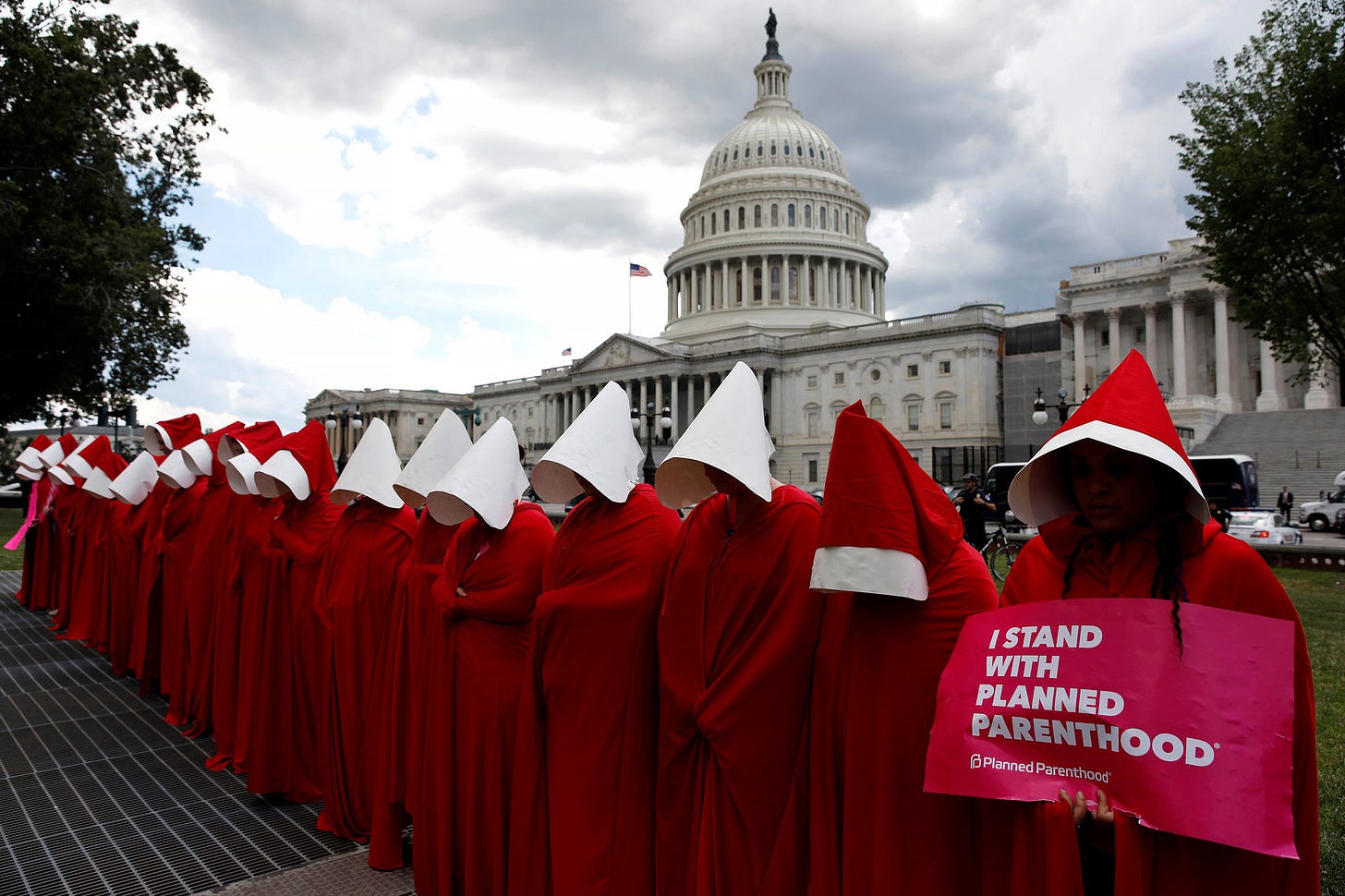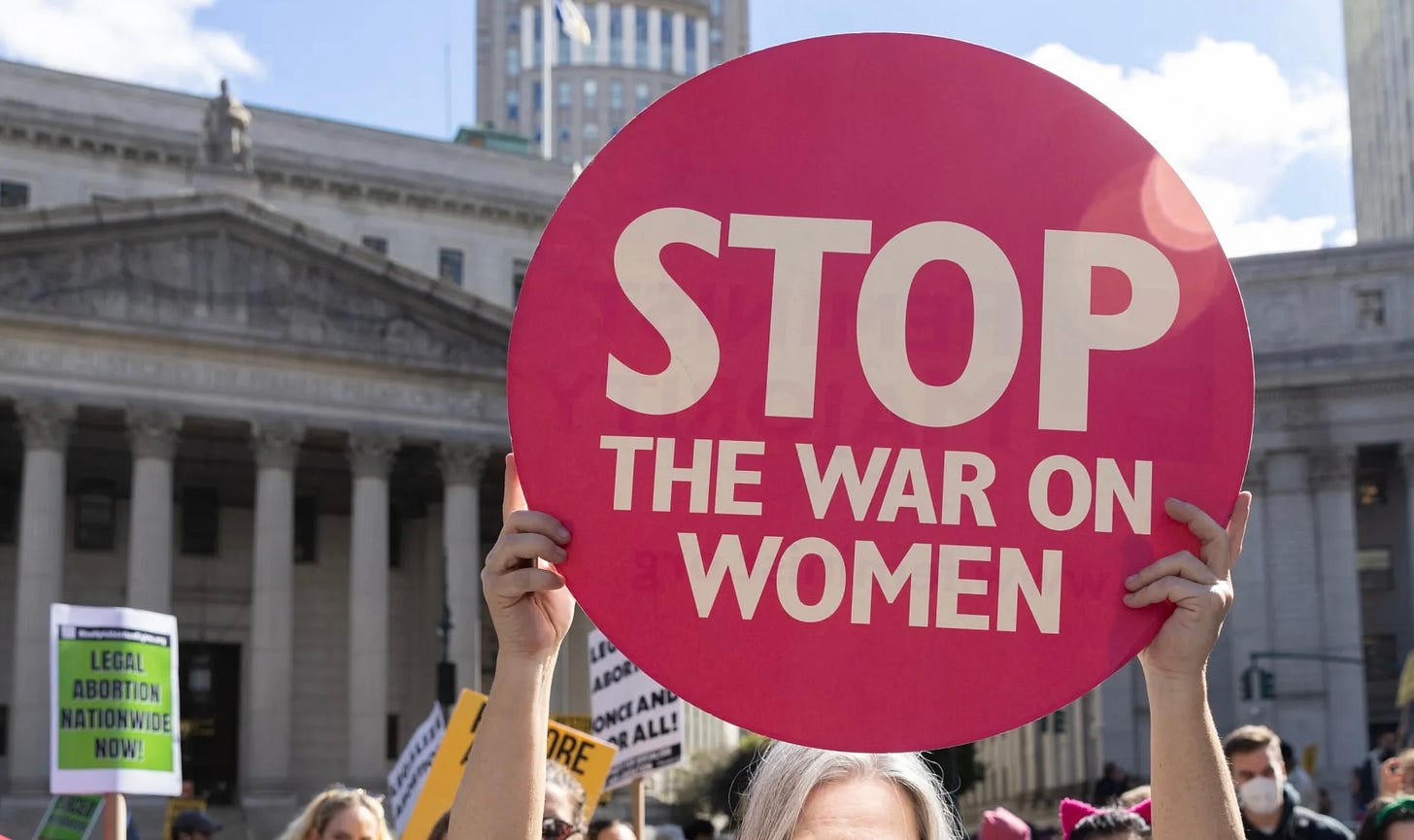"The patriarchy" came for me as a teen girl. Not how I thought it would.
I was taught I was oppressed. It made me miserable.
When I was thirteen, I was told the patriarchy was coming for me. Looming in every paycheck, every relationship, every room where a man spoke before I did. I was taught it would restrict my freedom and my potential.
Before I entered public high school, I hadn’t heard much about it. My dad is a Professor and my mom is a homemaker / retired therapist. They modeled a healthy thriving marriage. I wasn't told: "You can do anything a man can do in your career," because I had no reason to think otherwise. I wasn't told: "Women have the same rights as men," because it was evident. I noticed that my dad worked tirelessly to gift my mom the ability to devote her time to raising children. And she gifted him her devotion to us. You would think all this set me up for a strong foundation of self confidence and hope for the marital unit.
But by ninth grade, I was being warned sometimes subtly, but oftentimes overtly, that I was entering a rigged game. I was told I'd hit a glass ceiling and that even if I did make it in corporate world, that I would be paid less by malevolent misogynists. I was told that the miracle of my reproductive capacity would limit my career trajectory. That if politicians restricted my right to abortion, it would doom me to the kitchen! I was told that a man wouldn’t help me raise children and if I became a mother, I’d be relegated to the societal class of the "unimportant." These ideas were transmitted in my history classes, my literature readings, even health education. I began to see the world not as a place of opportunity, but as a minefield.
Every romantic slight, every male professor who interrupted me, every compliment that mentioned how I looked instead of how I thought were not interpersonal interactions with their unique complexities. Instead, they were proof that I was trapped inside a system designed to subjugate me. The anxiety was constant. The vigilance was exhausting. But the indoctrination was pervasive enough to convince me that this angst was justified awareness.
If I felt anxious, which goodness I did, it meant I was correctly perceiving the system around me. “Trust your righteous anger,” they told us. And I did, even though, looking back, it was in large part, manufactured.
So I learned to emulate male assertiveness. I thought the only way to succeed was to become more like a stereotypical man: less agreeable, more dominant, less maternal, more competitive. I wasn’t told I had a feminine strength. I was told femininity was a liability. This is horrifying to write down, but I remember laughing with my friends at the thought of getting an abortion if I got pregnant with the child of a jerk I knew in high school. A heartbreaking admission that fills me with both shame and gratitude that I can renounce that hatred.
When Trump won in 2016, I was 17. I cried... a lot. Not because I had deeply researched his policies or had strong geopolitical opinions, but because I had been told repeatedly and with great certainty that his election meant people hated women. Women's ceiling had just been reinforced with bulletproof glass and this country would always resent me by nature of my sex.
In the hyper progressive culture I was raised in, there was no discussion of establishment fatigue, no critique of Clinton’s campaign strategy, and most shockingly, no plain acknowledgment that political transfers of power just tend to be cyclical. There was only a moralizing narrative: this happened because you are oppressed and always will be. And I believed it.
Here’s the truth as I've gathered it so far: Do men have advantages that women don’t? Of course. Just look at physical size alone; our sex differences are real and consequential. But women have advantages too, and it’s dishonest to pretend otherwise. We are more likely to be offered help, to be protected, to be given the benefit of the doubt. People often assume we’re nurturing, trustworthy, and emotionally intelligent. In many spaces, being female works in our favor. So yes, sex-based advantages exist for both populations. But in this culture, I was offered a self-perception of victimhood, and I took it.
Fortunately, I couldn't accept that half the electorate wanted to subjugate me. I began trying to understand how someone could vote for a "woman-hater." It wasn’t until I began to question the totality of the dogma that something shifted. Slowly, I began to suspect that my womanhood wasn’t a handicap. Maybe I could embrace motherhood and still have a brain. Maybe marriage wasn’t a trap, but a life partnership, just as my parents so beautifully demonstrated. Maybe femininity wasn’t weak. No, it was powerful in a equally valid way.
As I aged (now at the ripe age of 26), I realize I didn’t need to reject feminism entirely. But I can separate the merits from the lies. Yes, traditional feminists fought for voting rights and crucial legal protections, but I can leave behind the resentment and the war on trust between men and women.
The "patriarchy" was supposed to hold me back. It did. Not the reality of it, but everyone telling me it was coming for me.
Today, I’m a mother and a step-mom. I’m married to a supportive man who is my life-partner. I’m building things I believe in: first, my family, and second, my ability to share my thoughts without fear of reprisal. I have faith that doing the next right thing will lead me down a path this is aligned with my values. So are there barriers, even systemic ones, that every individual will face? Yes. But an insurmountable barrier is a lack of faith in oneself. I'm learning to reject that.





